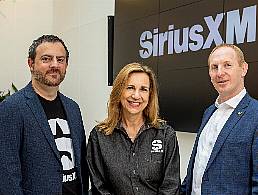Python has grown into one of the IT industry’s most in-demand skills for programmers and developers.
A language designed to improve productivity and code reliability, Python’s prominence is evidenced by the vast numbers of jobs on offer in the field, reflecting the acute software labour shortage in Ireland.
A high-level language, Python’s fairly easy to understand syntax means it is far more accessible for software engineers to pick up than, say, lower-level languages like C, and its open-source format is an attractive proposition for many start-up businesses popping up around the world.
“I graduated in 2000 and worked for two years in C++ and C#,” explains Brian McDonnell, chief technology officer and co-founder of start-up PageFair and a member of Python Ireland. “Then in my next job, one part of it involved using Python.”
“I learned on the job and I just grew my experience in it. That was originally just a utility script that we had written in Python, but in time I migrated to writing almost all server-side code in Python,” he says of a career that has so far mirrored the software industry as a whole – with Python’s significance growing quickly in the past ten or so years.
If this is a popularity contest…
Python’s emergence as a popular, productivity-friendly language has seen it taken up by businesses right across the spectrum. It is almost commonplace of start-ups to use it in some regard, with even some established larger businesses taking the major decision to move away from corporate languages into the open-source world of Python in recent years.
Plenty of that is to do with how modern web applications are created. Rather than developing a finished product, instead companies bring out a product that’s relatively quick to create.
Then from customer feedback it is remodelled, perhaps dropping the vast majority of the original product, and brought out again. This cycle is gone through over and over again and it is this ability to adapt quickly, that shapes today’s web world. Python, in this context, proves very popular indeed.

Python programmers can earn a fine living, with salaries ranging from €28,000-€40,000 at with 0-3 years’ experience right up to €70,000 after just five years. Python image via Shutterstock
“Python is easy to learn, quick to develop in, flexible and very-well supported with thousands of mature and freely available libraries available to work with,” explains McDonnell. “It’s these qualities that make Python so popular with programmers and companies alike. The growth of the Python community is a reflection of the increasing industry demand for Python programmers.”
But are there jobs?
“Python developers are likely to be in-demand as larger scale web applications are created,” reads Morgan McKinley’s 2015 salary guide, which highlights the language as one of the key tools jobs candidates can profit from having.
It reports that Python programmers can earn anything from €28,000-€40,000 at graduate level, right up to €70,000 with over five years’ experience.
Elsewhere Hays highlighted it as one of the four prominent languages most in-demand in the IT industry, with salaries looking very generous for those either just entering the work force, or indeed those with a good bit of experience.
Indeed the acute need for software experts in general in Ireland, which is one of the globe’s primary tech hubs when you consider the variety and size of the many companies based here, is represented very well through the prism of Python’s in-demand workers.
“My own start-up PageFair is currently hiring Python developers,” explains McDonnell, who finds himself competing with the likes of heavyweights including Demonware, Google and Bank of America for staff.
Know your options
However, what surprises him is not that the talent pool can go where they like, it is that many don’t realise how in-demand they are.
“I hope computer science students realise how much opportunity is out there,” he says of an industry constantly looking for the best possible employees, especially so when considering how much more of a meritocracy software development and programming is than, say, politics, media or advertising.
“Unfortunately, I’ve spoken to UCD undergrads who think they need to follow a graduate programme and join Microsoft or Accenture to become ‘real programmers’.
“For me, real programmers are the ones who have a genuine interest in programming; they love learning new things, they contribute the open source projects and they join communities of their peers – like Python Ireland.
“All computer science graduates are in demand, but the ones that show a real passion for programming are the ones who have their pick of the jobs.”
Software development image via Shutterstock




